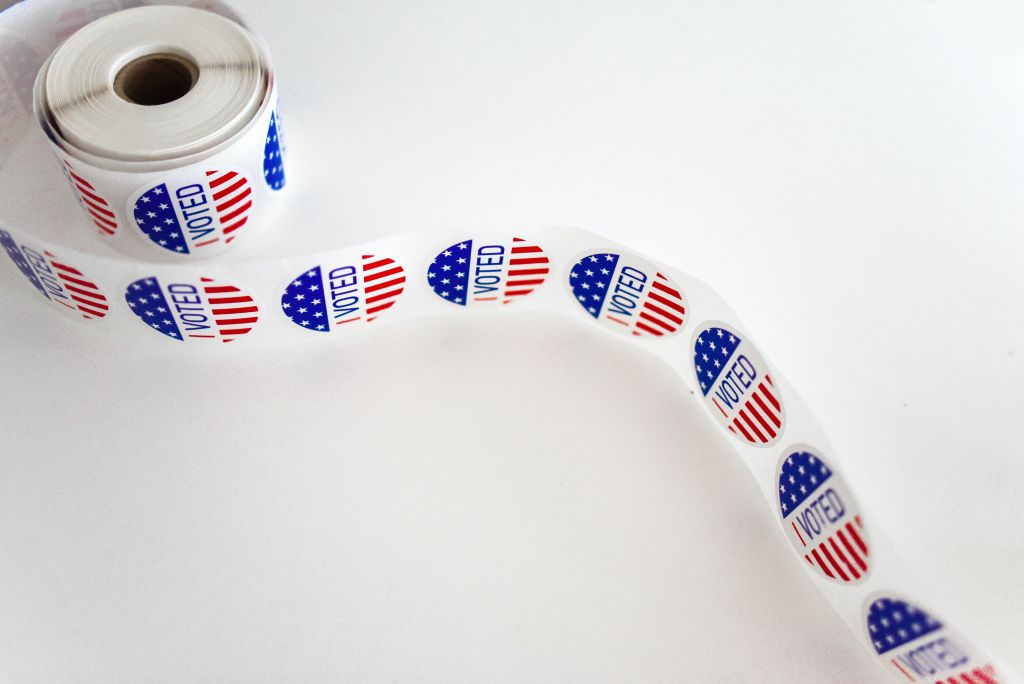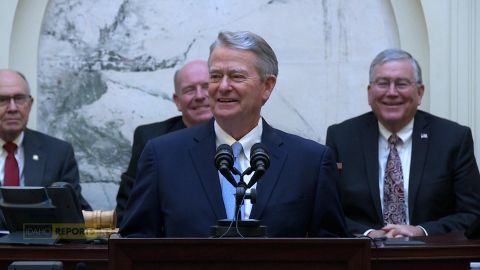Three things you may not know about election administration

Election administration can be a complex topic, and it’s not easy to keep up with all the related legislation in your state—let alone all the others. Our weekly newsletter, The Ballot Bulletin, provides a regular, big-picture update on proposed changes to state election policies. Our interactive Election Administration Legislation Tracker allows you to find and read election-related bills in your state—and provides summaries of those bills in clear, accessible language.
Let’s take a look at a few bills that became law last week as an example of the legislation summaries and context we provide.
North Dakota
Gov. Doug Burgum (R) signed bipartisan-sponsored SB2163 into law on March 22. Current law allows the secretary of state and attorney general, in consultation, to summarize constitutional amendments and ballot measures that the secretary of state deems too long to print on the ballot in full. This bill requires the secretary of state to use “plain, clear, understandable language using words with common, everyday meaning” in those summaries. The bill also requires the secretary of state to use clear language in writing fiscal impact statements.
The Senate voted to approve SB2163 27-20. Twenty-five Republicans and 2 Democrats voted to approve the bill. The House voted 84-9 (with one representative not voting). Seventy-three Republicans and 11 Democrats supported the bill.
We are currently tracking 94 bills relating to ballot measures and other forms of referendums. Utah enacted one bill in this category, HB0068, establishing criteria for signature verification and processes for removing signatures from a ballot measure or nominating petition. In 2022, state legislators considered 115 bills on this topic, eight of which were enacted.
South Dakota
Gov. Kristi Noem (R) signed Republican-sponsored SB 55 on March 21. The bill prohibits the use of ranked-choice voting and any other method of voting that involves multiple rounds of tabulation or candidate ranking. The bill is one of several similar bills under consideration around the country, all sponsored by Republican legislators. Lawmakers in Arizona, Idaho, Minnesota, Montana, and Texas are all considering similar measures that would preemptively prohibit the use of ranked-choice or other similar multi-round voting methods in their states. Florida and Tennessee passed similar prohibitions in 2022. Lawmakers in Alaska and Maine are considering legislation that would repeal their state’s current use of ranked voting.
So far in 2023, we’ve tracked 63 bills related to ranked-choice voting, compared to 66 in 2022. Of the 63 bills introduced in 2023, 12 are some form of prohibition or repeal of ranked or multi-round voting methods, and five of these have passed at least one chamber of the legislature.
Idaho
Gov. Brad Little (R) signed H0124 into law on March 15. The bill, which was introduced by the House State Affairs Committee, removes student IDs from the state’s list of acceptable forms of voter identification. Idaho is one of 25 states that require photo identification in order to vote. In Idaho, voters must present either a driver’s license or photo ID card, a U.S. passport or passport card, a tribal photo ID, or a concealed weapons permit issued by an Idaho county sheriff in order to vote. If voters aren’t able to do so, they can sign an affidavit swearing to their identity and still vote by regular ballot.
We are currently tracking 97 bills relating to voter identification.
Overall, 2,005 election-related bills have been introduced in state legislatures this year.

Click here to use Ballotpedia’s tracker to see what changes legislators are proposing to election administration laws in your state.




